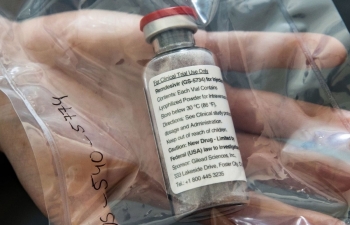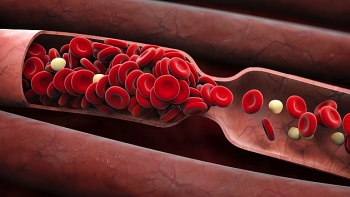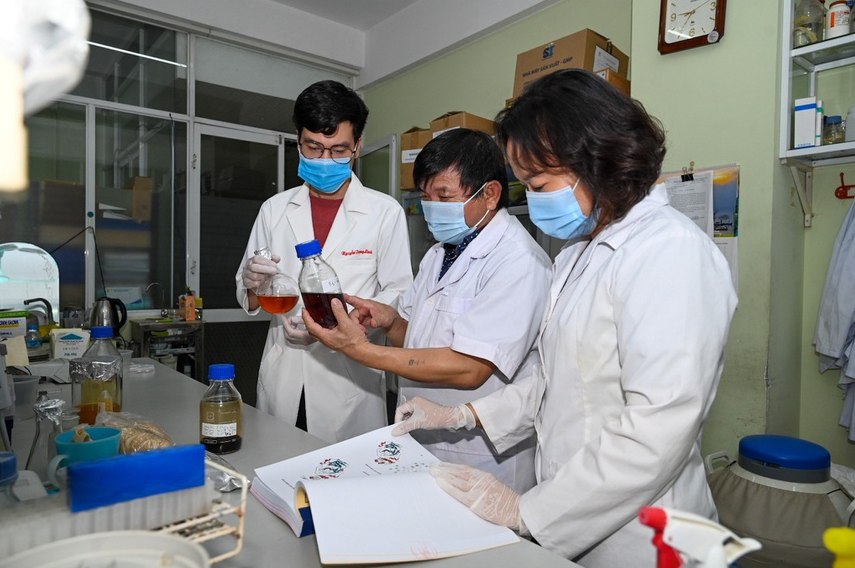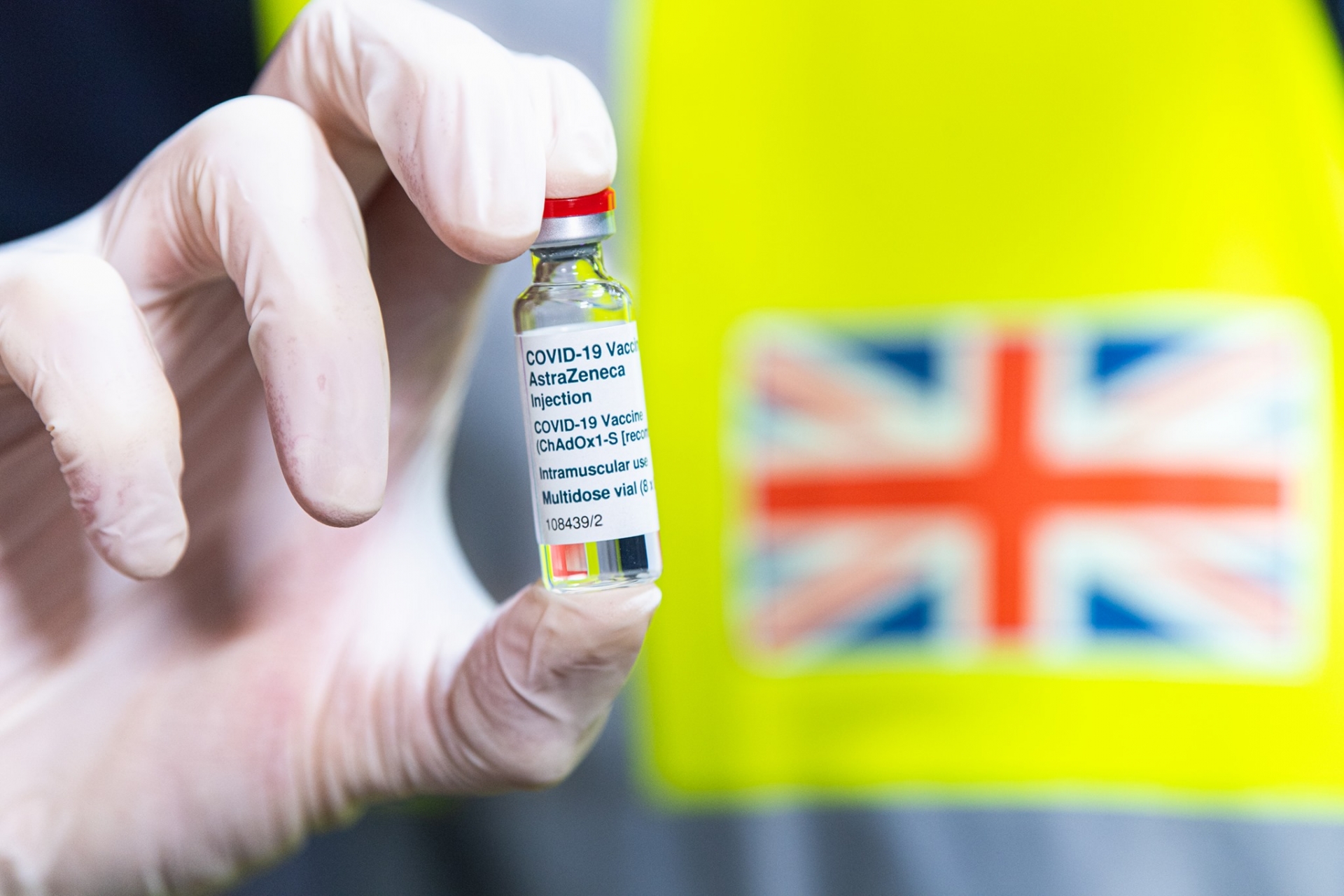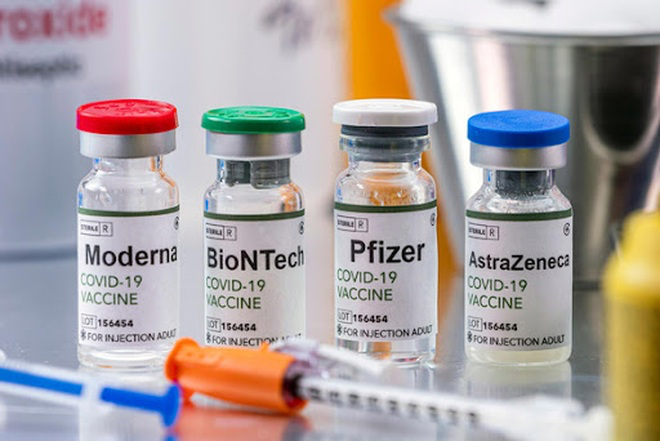Severe Vitamin D deficiency and COVID-19 mortality rate strongly correlate
| Remdesivir approved for COVID-19 treatment in Japan | |
| Vietnamese Swedish denied of treatment died from COVID-19 | |
| Blood clot, new deadly complication of COVID-19 |
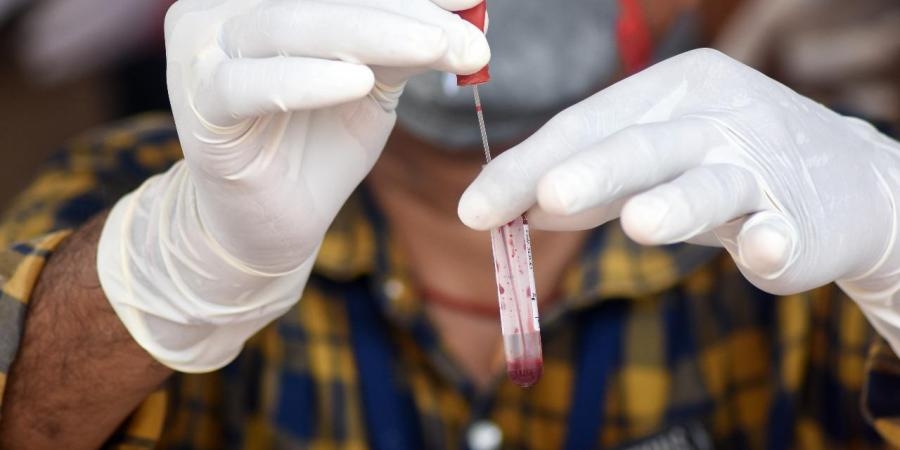 |
| (Photo: EPS) |
New COVID-19 research finds relationship in data from 20 European countries.
Scientists have found an association between low average levels of vitamin D, and high numbers of COVID-19 cases and mortality rates across 20 European countries, and call for dedicated studies to probe into the relationship, as reported by Indian Express.
Based on earlier studies, the researchers, including Lee Smith of Anglia Ruskin University in the UK, said there is an association between low levels of vitamin D and susceptibility to acute respiratory tract infections. The research result is published in the journal Aging Clinical and Experimental Research.
| The researchers found a strong correlation between vitamin D levels and cytokine storm, which is a hyperinflammatory condition caused by an overactive immune system, according to New York Post. “Cytokine storm can severely damage lungs and lead to acute respiratory distress syndrome and death in patients,” Ali Daneshkhah, a postdoctoral research associate at Northwestern’s McCormick School of Engineering, said in a statement. “This is what seems to kill a majority of COVID-19 patients, not the destruction of the lungs by the virus itself. It is the complications from the misdirected fire from the immune system.” |
 |
| (Photo: Vinmec) |
Italy and Spain have both experienced high COVID-19 mortality rates, and the new study shows that both countries have lower average vitamin D levels than most northern European countries. This is partly because people in southern Europe, particularly the elderly, avoid strong sun, while skin pigmentation also reduces natural vitamin D synthesis, Scietech daily reported.
The highest average levels of vitamin D are found in northern Europe, due to the consumption of cod liver oil and vitamin D supplements, and possibly less sun avoidance. Scandinavian nations are among the countries with the lowest number of COVID-19 cases and mortality rates per head of population in Europe.
“Vitamin D has been shown to protect against acute respiratory infections, and older adults, the group most deficient in vitamin D, are also the ones most seriously affected by COVID-19.Dr. Lee Smith, Reader in Physical Activity and Public Health at Anglia Ruskin University, said: “We found a significant crude relationship between average vitamin D levels and the number COVID-19 cases, and particularly COVID-19 mortality rates, per head of population across the 20 European countries.
“A previous study found that 75% of people in institutions, such as hospitals and care homes, were severely deficient in vitamin D. We suggest it would be advisable to perform dedicated studies looking at vitamin D levels in COVID-19 patients with different degrees of disease severity.”
However, this does not mean that everyone — especially those without a known deficiency — needs to start hoarding supplements
“While I think it is important for people to know that vitamin D deficiency might play a role in mortality, we don’t need to push vitamin D on everybody,” said Northwestern’s Vadim Backman, who led the research. “This needs further study, and I hope our work will stimulate interest in this area. The data also may illuminate the mechanism of mortality, which, if proven, could lead to new therapeutic targets”, Technology networks quoted the researcher as saying.
Backman said this correlation might help explain the many mysteries surrounding COVID-19, such as why children are less likely to die. Children do not yet have a fully developed acquired immune system, which is the immune system’s second line of defense and more likely to overreact.
Backman is careful to note that people should not take excessive doses of vitamin D, which might come with negative side effects. He said the subject needs much more research to know how vitamin D could be used most effectively to protect against COVID-19 complications.
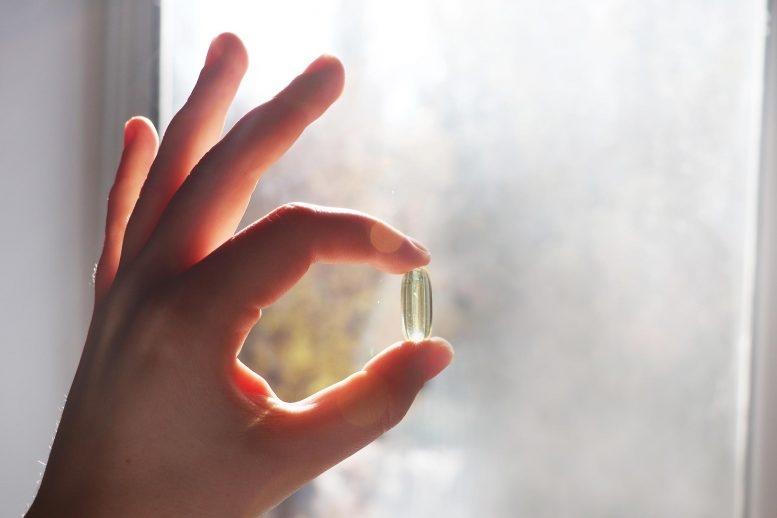 |
| (Photo: Scitech Daily) |
Mr. Petre Cristian Ilie, lead urologist of Queen Elizabeth Hospital King’s Lynn NHS Foundation Trust, said: “Our study does have limitations however, not least because the number of cases in each country is affected by the number of tests performed, as well as the different measures taken by each country to prevent the spread of infection. Finally, and importantly, one must remember correlation does not necessarily mean causation.”
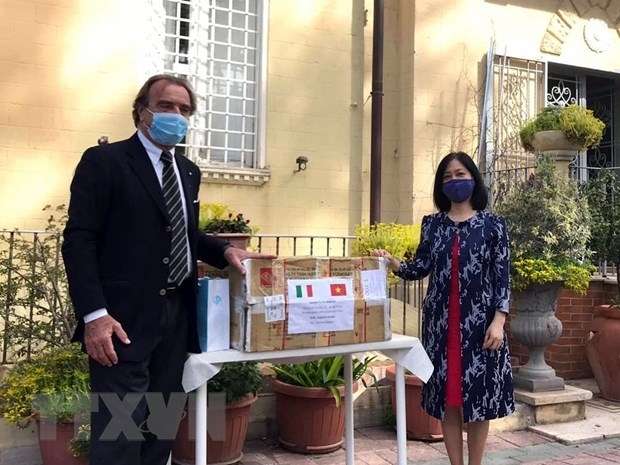 | The Vietnamese Embassy in Italy provided medical supplies to support the host country against COVID-19 The Vietnam Embassy in Italy has actively mobilized medical supplies from domestic donations to support Italy and join hands with the native community to combat ... |
 | Covid-19 combat in Vietnam: Immediacy, effectiveness, and transparency! Shama Obaed, a member of the Foreign Relations Committee, Bangladesh Nationalist Party (BNP) has shared his point of view on the coronavirus fight in Vietnam ... |
 | Vietnam to ensure tourist safety amidst COVID-19 pandemic The Vietnam National Administration of Tourism has recently issued recommendations on how to prevent the spread of the COVID-19 epidemic for travel agencies, resorts and ... |
In topics
Recommended
 World
World
Pakistan NCRC report explores emerging child rights issues
 World
World
"India has right to defend herself against terror," says German Foreign Minister, endorses Op Sindoor
 World
World
‘We stand with India’: Japan, UAE back New Delhi over its global outreach against terror
 World
World
'Action Was Entirely Justifiable': Former US NSA John Bolton Backs India's Right After Pahalgam Attack
Popular article
 World
World
US, China Conclude Trade Talks with Positive Outcome
 World
World
Nifty, Sensex jumped more than 2% in opening as India-Pakistan tensions ease
 World
World
Easing of US-China Tariffs: Markets React Positively, Experts Remain Cautious
 World
World

